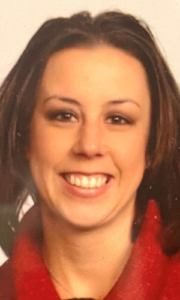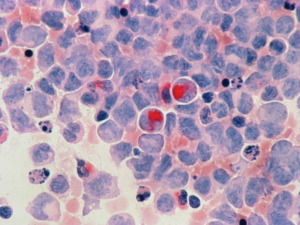Oral cancer treatments are often more convenient than traditional intravenous chemotherapy for patients with cancer, but they also can be more expensive to the patient directly. Oncology nurse navigators (ONNs) help patients obtain financial assistance as well as provide patient education and coordinate care.
Kristin Bukowski, BSN, RN, an ONN at Catholic Health Cancer Institute at St. Francis Hospital, East Hills, NY, described the steps that ONNs take to secure financial assistance for patients with cancer at the symposium, “Navigating the Patient Through Their Cancer Journey,” at Advanced Practice Providers Oncology Summit (APPOS) New York, held in August 2023.
“Once it is determined that an oral agent will be incorporated into a patient’s treatment plan and the provider sends the prescription to a specialty pharmacy, we’ll work closely with the financial clearance center to ensure prior authorization approval is obtained from the patient’s insurance,” Bukowski said.

Kristin Bukowski, BSN, RN
The Role of the Oncology Nurse Navigator
The Oncology Nursing Society (ONS) defines an oncology nurse navigator (ONN) as “a professional RN with oncology-specific clinical knowledge who offers individualized assistance to patients, families, and caregivers to help overcome healthcare system barriers. Using the nursing process, an ONN provides education and resources to facilitate informed decision making and timely access to quality health and psychosocial care throughout all phases of the cancer continuum.”1
While there are other types of patient navigators, the ONN applies clinical experience to provide reinforcement and education about diagnosis and treatment side effects and their management to the patient and caretakers. It is this competency that sets the ONN apart from the social worker, financial counselors, and patient navigators, as the ONN is the only one trained to provide clinically relevant information.2
References:
- Role of the Oncology Nurse Navigator Throughout the Cancer Trajectory. April 2021. Accessed September 7, 2023.
- Kristina, R. MSN. Jrnl of Onc Navigation & Survivorship, 2 Mar. 2020.
Health Insurance Copayments
“Out-of-pocket costs for some of these treatments can reach upwards of 35% of the total cost of the drug,” Bukowski told attendees. “The level of copay or co-insurance can add up very quickly. Patients who have difficulty meeting their copays often will discontinue their therapy, which increases the risk of therapeutic failure.”
For patients with commercial insurance, copay cards are often available to help reduce the medication copay to little, if any, out-of-pocket cost. “If available, we provide the copay card information to the specialty pharmacy so it can be applied to the prescription. We often also will contact many of the drug representatives in this case, and they help us get those copay cards so we can get that to the specialty pharmacies,” she said, outlining the steps involved in obtaining financial assistance for patients prescribed oral cancer drugs.
Foundations and Grants
Patients who have Medicare insurance are usually the population with the highest cost burden for oral anti-cancer treatments since copay cards are not allowed to be utilized for governmental insurance. “In these cases, we work very closely with the specialty pharmacy. We’ll first try to investigate if there are any open foundation or grant assistance, which helps to cover the copay cost,” she said.
If a patient is approved for assistance with a foundation or a grant, that money is then applied to that out-of-pocket cost, and delivery is then scheduled with a specialty pharmacy.
“Specialty pharmacies are also very good with helping keep that communication with us and the patient; they’ll keep track of the amount of the grant that the patient is receiving at the beginning of that year or throughout the year. Once that starts to decrease, when they’re approaching when it won’t cover the co-pay cost, they will notify us and the patient, and we can resume that process of looking for additional funding,” she said.
Patient Assistance and Free-Drug Programs
When financial assistance via foundation or a grant is unavailable due to multiple factors, such as the foundation is no longer providing support for the diagnosis or a patient is over the income guideline, the specialty pharmacy will refer the patient to a patient assistance program (PAP). The ONN then investigates the process, obtains the application, and assists the provider and patient to complete the applications.
Bukowski said the ONN handles the submission and follows up with the manufacturer to ensure no further documentation is needed. When a patient is approved for PAP, the ONN ensures the prescription is processed with the program’s dispensing pharmacy and delivery is scheduled between the pharmacy and the patient. Since PAPs are typically only approved until the end of the year, ONNs also work with the patient and provider to complete renewal applications.
If a patient is denied for the PAP, the ONN will contact the manufacturer to inquire about an appeal process, and ONNs work with patients through the appeal process. “If a manufacturer does not have an appeal process, which unfortunately some of them do not, and the patient’s denial stands, at that point we would have to notify the provider of the patients’ inability to access the drug because of cost-related issues,” she said.
Bukowski described obtaining financial assistance for patients with cancer as very rewarding. “When we have an outcome where the patient is approved for free drug, we know the patient is on the appropriate regimen without having that cost burden and worry,” she said.







